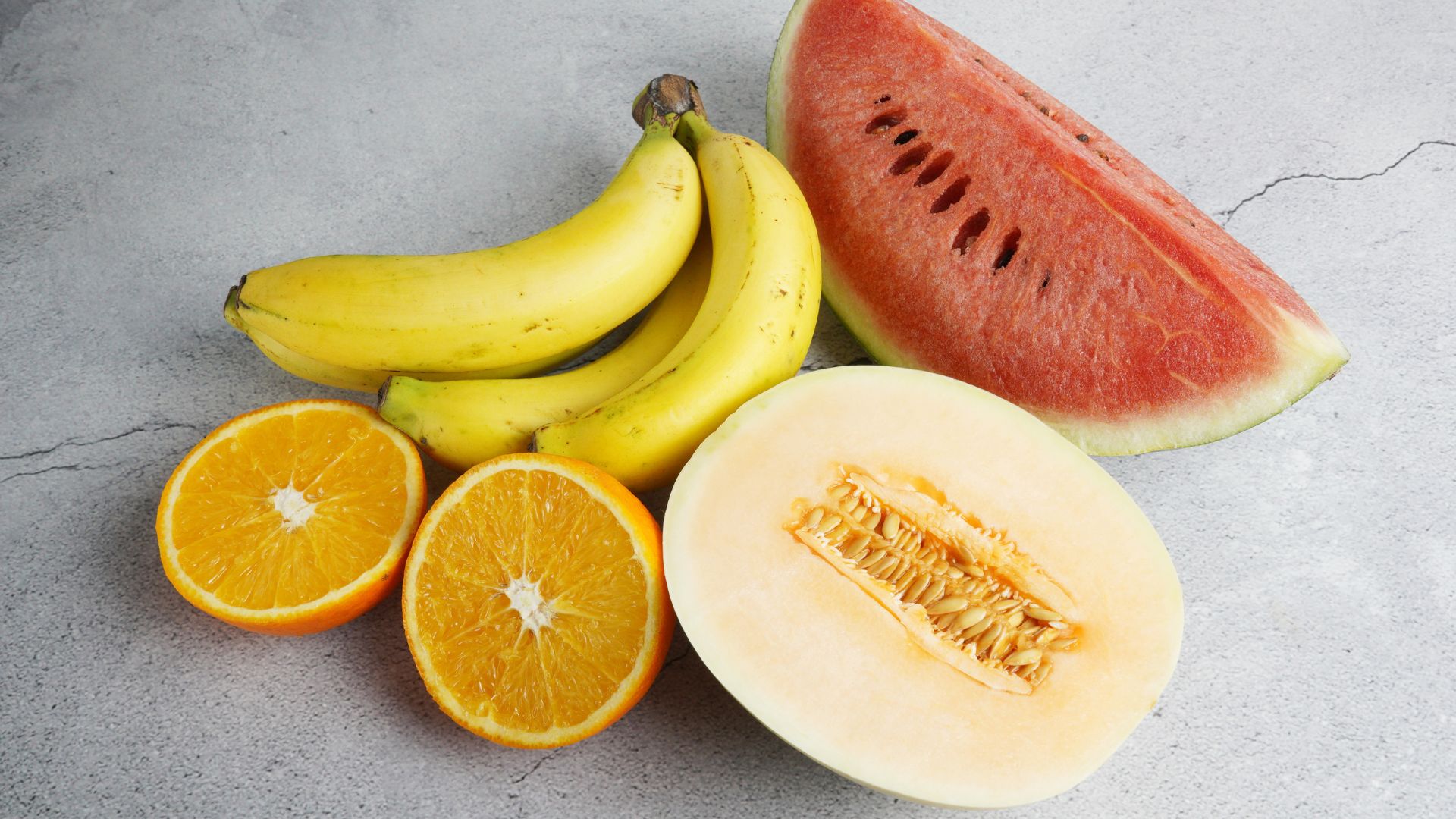Have you ever wondered how some foods can boost your energy and keep your body functioning smoothly? One key nutrient plays a huge role in this: potassium. This essential mineral helps maintain a healthy heart, supports your muscles, and balances fluid levels.
Potassium-rich fruits are a delicious way to meet your daily value of this vital nutrient. Whether you’re dealing with health problems or simply looking to stay healthy, these fruits can make a difference. Let’s explore the best fruits for potassium and how they can improve your overall health.
Boosting Potassium with Healthy Foods
According to research, potassium is an essential nutrient because your body cannot produce it. As a result, you need to obtain potassium from foods to meet your recommended daily intake, referred to as the Daily Value (DV).
If you’re looking to increase your potassium intake, it’s important to know the best food sources to include in your diet. Some potassium-rich fruits, along with other foods high in potassium, can help raise your potassium levels effectively. For example, pinto beans, sweet potatoes, and leafy greens are excellent sources of potassium content.
When you’re aiming to boost your potassium intake quickly, you may also consider drinking coconut water or tomato juice, as they’re rich in potassium per serving. Additionally, foods like soy milk and fish are also great sources, providing a low-fat option that benefits your heart health.
For people with heart disease or those managing high blood pressure, it’s crucial to maintain healthy potassium levels. Consuming salt substitutes and foods high in potassium, like lima beans and vegetables, can help balance sodium levels and support heart rhythm.
Taking supplements is an option for those who have difficulty meeting their potassium needs from food alone. However, incorporating potassium-rich foods naturally into your diet is a great way to avoid the need for potassium supplements.
Fruits for Potassium
Potassium is an essential nutrient that your body needs to function correctly. It helps regulate your heart rhythm, supports your kidneys, and keeps your muscles working properly. Many people don’t get enough potassium, leading to problems like muscle weakness and high blood pressure. Including potassium-rich fruits in your diet is one of the easiest ways to boost your potassium levels.
Fruits for potassium are not only nutritious and almost fat-free, but also incredibly versatile. You can enjoy them as snacks, add them to smoothies, or use them in recipes. Eating these fruits can also help people with low potassium levels or those following a low-potassium diet.
For most healthy people, these fruits provide a natural way to improve heart health and maintain proper blood pressure. Let’s dive into the top potassium-rich fruits you can include in your daily diet.
1. Bananas
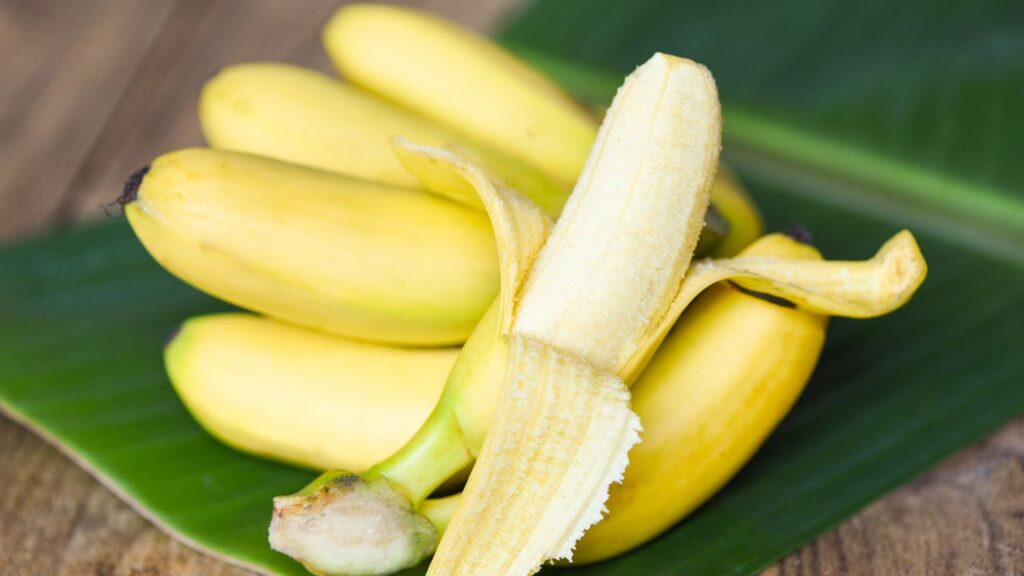
Bananas are the most well-known source of potassium. Recent studies prove that they are a good source of potassium. 1 medium banana provides about 400 mg of potassium, making it a good source of this essential mineral. Bananas are low in fat and packed with other nutrients like b vitamins and fiber. They’re easy to eat on the go and pair well with other foods like yogurt or peanut butter.
Bananas are great for people who want to increase their potassium intake quickly. If you’re dealing with potassium deficiency, eating one banana a day can make a noticeable difference. This fruit is also beneficial for athletes, as it helps ease muscle cramps and replenish electrolytes after workouts. Adding a banana to your diet can be a step toward better heart health and overall well-being.
If you’re looking to stay healthy, bananas are an affordable and tasty choice. They’re low in calories and free of saturated fat, making them ideal for those watching their weight. Whether you eat them fresh, sliced into cereal, or blended into a smoothie, bananas are a simple and delicious way to get more potassium.
2. Oranges
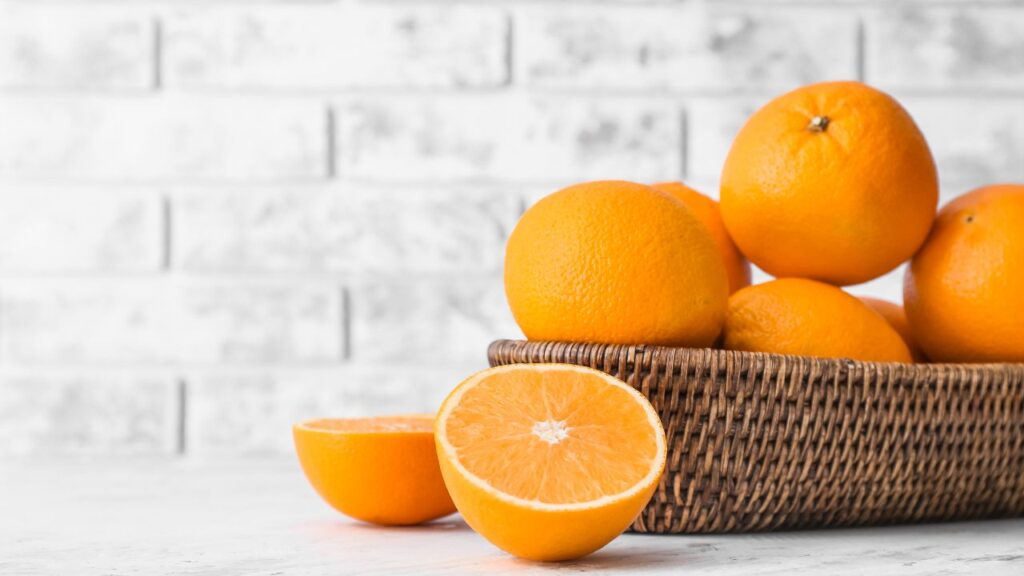
Oranges are another excellent source of potassium. One cup of orange segments provides around 240 mg of potassium, making them a valuable addition to your diet. These fruits are not only high in potassium but also packed with vitamin C, which supports your immune system.
Oranges are particularly beneficial for people with heart problems or those trying to maintain a healthy heart. Their high potassium content helps regulate heart rhythm and lower blood pressure. Oranges also contain other nutrients like folate and fiber, which support overall health.
Drinking a glass of orange juice is a convenient way to boost your potassium levels. However, fresh oranges are the best choice, as they’re lower in sugar and contain more fiber. If you have chronic kidney disease, consult your doctor before consuming large amounts of oranges, as too much potassium can be harmful.
3. Cantaloupes
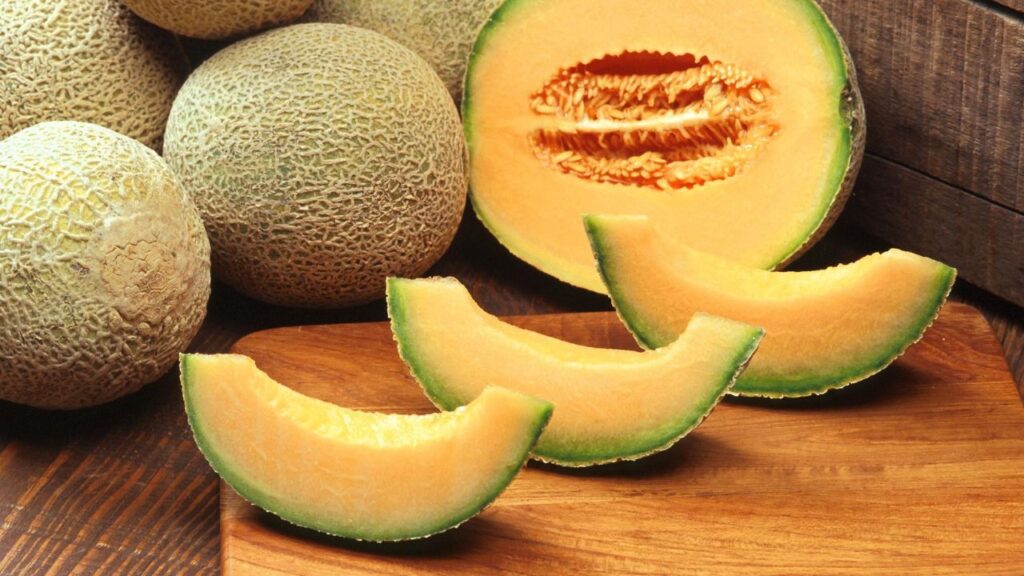
Cantaloupes are sweet, refreshing, and high in potassium. One cup of cantaloupe provides about 427 mg of potassium, making it one of the top potassium-rich fruits. This fruit is also low in calories and fat, making it an excellent choice for weight management.
Cantaloupes are rich in other nutrients, including vitamin A, which supports eye health, and b vitamins, which help with energy production. Adding cantaloupe to your breakfast or enjoying it as a snack can help you stay healthy and energized throughout the day.
For those with kidney problems or following a low-potassium diet, it’s essential to monitor your serving sizes. Cantaloupe is one of the high-potassium foods that can quickly raise your potassium levels. Always read labels and consult with your doctor if you’re unsure how much cantaloupe to include in your diet.
4. Honeydew

Honeydew melons are another potassium-rich fruit that deserves attention. One cup of honeydew contains around 388 mg of potassium, making it a good source of this essential mineral. Honeydew is also high in water content, which helps keep you hydrated.
This fruit is an excellent choice for people looking to lower their sodium intake. The potassium in honeydew helps balance sodium levels in the body, supporting heart health and proper kidney function. Eating honeydew regularly can also help reduce the risk of high blood pressure.
Honeydew is a versatile fruit that pairs well with other foods. You can add it to fruit salads, blend it into smoothies, or enjoy it on its own. Its sweet and refreshing taste makes it a favorite for people of all ages.
5. Apricots
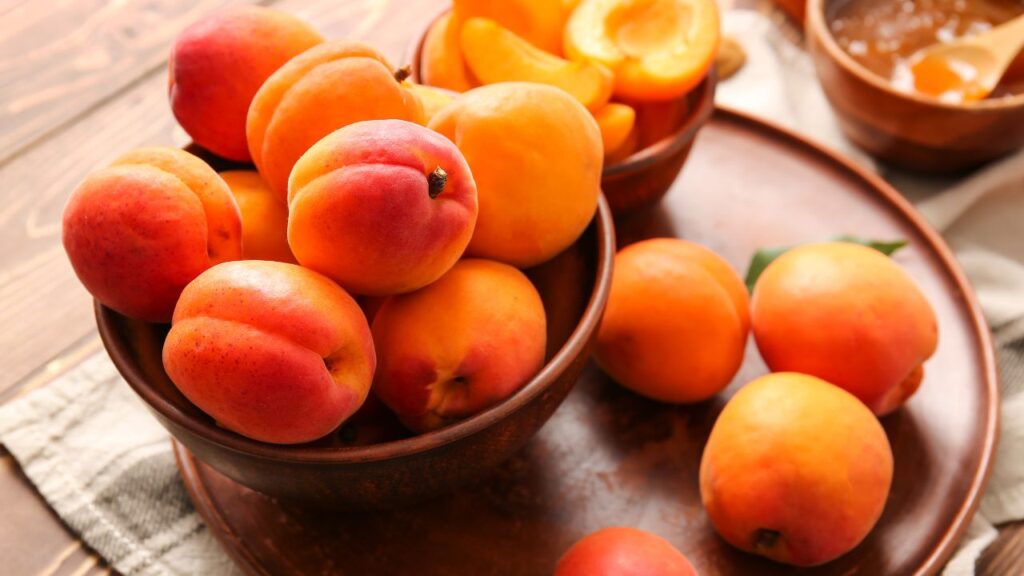
Apricots are small fruits with big benefits. A serving size of one cup provides about 400 mg of potassium, making them an excellent choice for boosting your potassium intake. They’re also rich in other nutrients, such as vitamin A and fiber, which support overall health.
Dried apricots are particularly high in potassium, with just a handful providing a significant amount. However, they can be high in sugar, so it’s essential to eat them in moderation. If you’re looking for a potassium-rich snack, dried apricots are a convenient option.
Apricots are also low in fat and calories, making them ideal for people watching their weight. Including apricots in your diet can help you stay healthy while satisfying your sweet tooth. Whether fresh or dried, this fruit is a delicious way to get more potassium.
6. Grapefruit
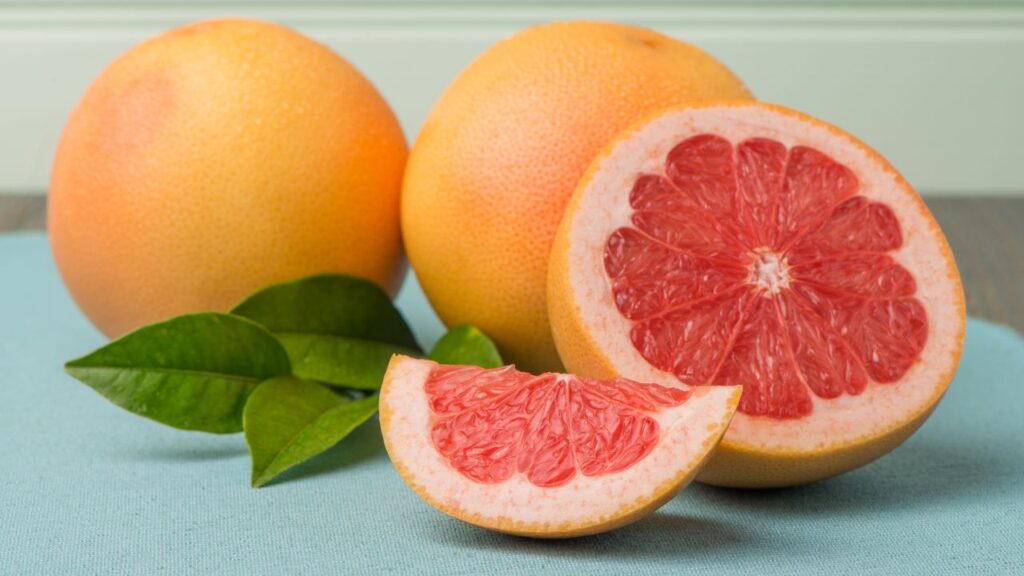
Grapefruit is a citrus fruit that’s high in potassium and low in calories. One cup of grapefruit segments provides about 320 mg of potassium. This fruit is also rich in vitamin C and antioxidants, which support immune health.
Grapefruit can help people with high blood pressure, as its potassium content helps regulate blood flow and heart rhythm. However, it’s essential to be cautious if you’re taking medications, as grapefruit can interact with certain drugs. Always consult your doctor if you have concerns.
For those following a low-potassium diet, grapefruit should be eaten in moderation. It’s one of the high-potassium foods that can affect potassium levels quickly. Enjoy grapefruit as a refreshing breakfast option or a midday snack.
7. Prunes
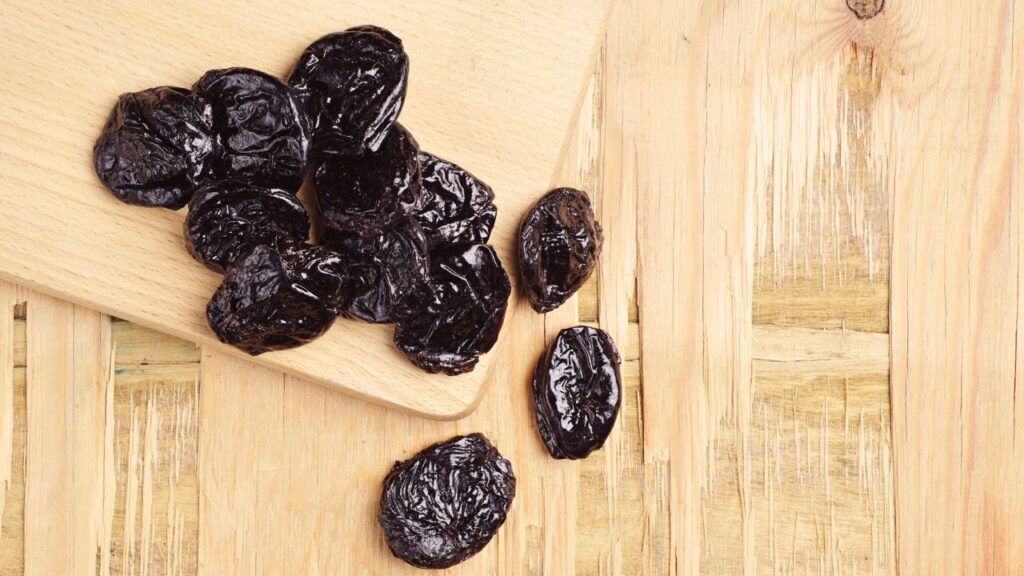
Prunes are dried plums known for their high potassium content. Just half a cup of prunes provides about 600 mg of potassium, making them one of the most potent potassium-rich fruits. Prunes are also rich in fiber, which supports digestive health.
Eating prunes can help ease muscle weakness caused by potassium deficiency. They’re also beneficial for heart health, as their high potassium content helps regulate blood pressure. Prunes are a great snack option for people looking to increase their potassium intake.
Prunes can be enjoyed on their own or added to recipes like oatmeal and baked goods. However, they’re high in sugar, so it’s essential to watch your serving sizes. For most healthy people, prunes are a convenient and effective way to boost potassium levels.
8. Raisins
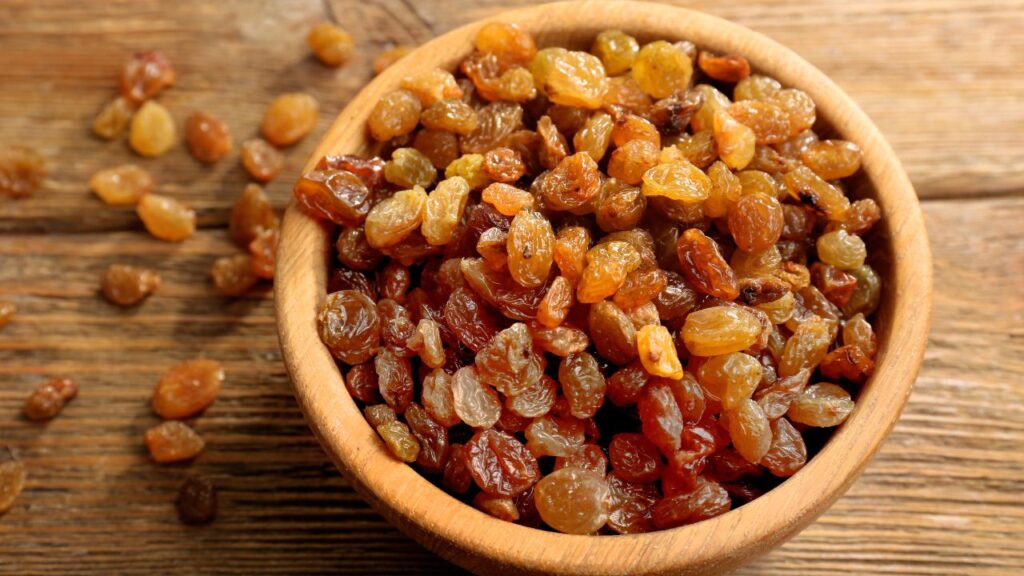
Raisins are another dried fruit that’s packed with potassium. A quarter cup of raisins provides around 300 mg of potassium, making them a good source of this essential mineral. Raisins are also rich in other nutrients like iron and fiber.
Including raisins in your diet can help improve heart health and prevent muscle weakness. They’re a convenient snack that you can take anywhere, making it easy to get more potassium on the go. Raisins are also a great addition to cereals, salads, and baked goods.
If you’re following a low-potassium diet, be mindful of your serving sizes. Raisins are high-potassium foods that can raise potassium levels quickly. Always consult with your doctor if you have concerns about eating raisins.
9. Dates

Dates are sweet and nutrient-dense fruits that are high in potassium. One serving size of about four dates provides approximately 280 mg of potassium. They’re also rich in fiber, which supports digestive health, and natural sugars, which provide a quick energy boost.
Dates are particularly beneficial for people looking to ease symptoms of potassium deficiency. They’re also a great choice for those following a heart-healthy diet, as their potassium content supports proper heart function.
You can enjoy dates on their own or use them as a natural sweetener in recipes. They pair well with nuts, cheese, and other foods, making them a versatile addition to your diet. Just be mindful of your serving sizes, as dates are high in sugar.
Conclusion
Potassium is an essential mineral that supports heart health, muscle function, and overall well-being. Including potassium-rich fruits in your diet is an easy and delicious way to meet your daily potassium intake.
From bananas to dates, these fruits offer a variety of options to suit every taste. Lima beans and sweet potatoes are also among excellent food sources of potassium. Legumes like lima beans and fish are other great sources that increase potassium quickly.
For people with health concerns like chronic kidney disease or high blood pressure, managing potassium levels is crucial. Always consult your doctor if you’re unsure how much potassium to include in your diet. By choosing the right fruits and watching your serving sizes, you can enjoy the benefits of potassium without any risks.
Incorporating these fruits into your meals can help you stay healthy, energized, and ready to tackle the day. So, the next time you’re planning your diet, don’t forget to include fruits for potassium. They’re not just good for your body, they’re delicious too!

